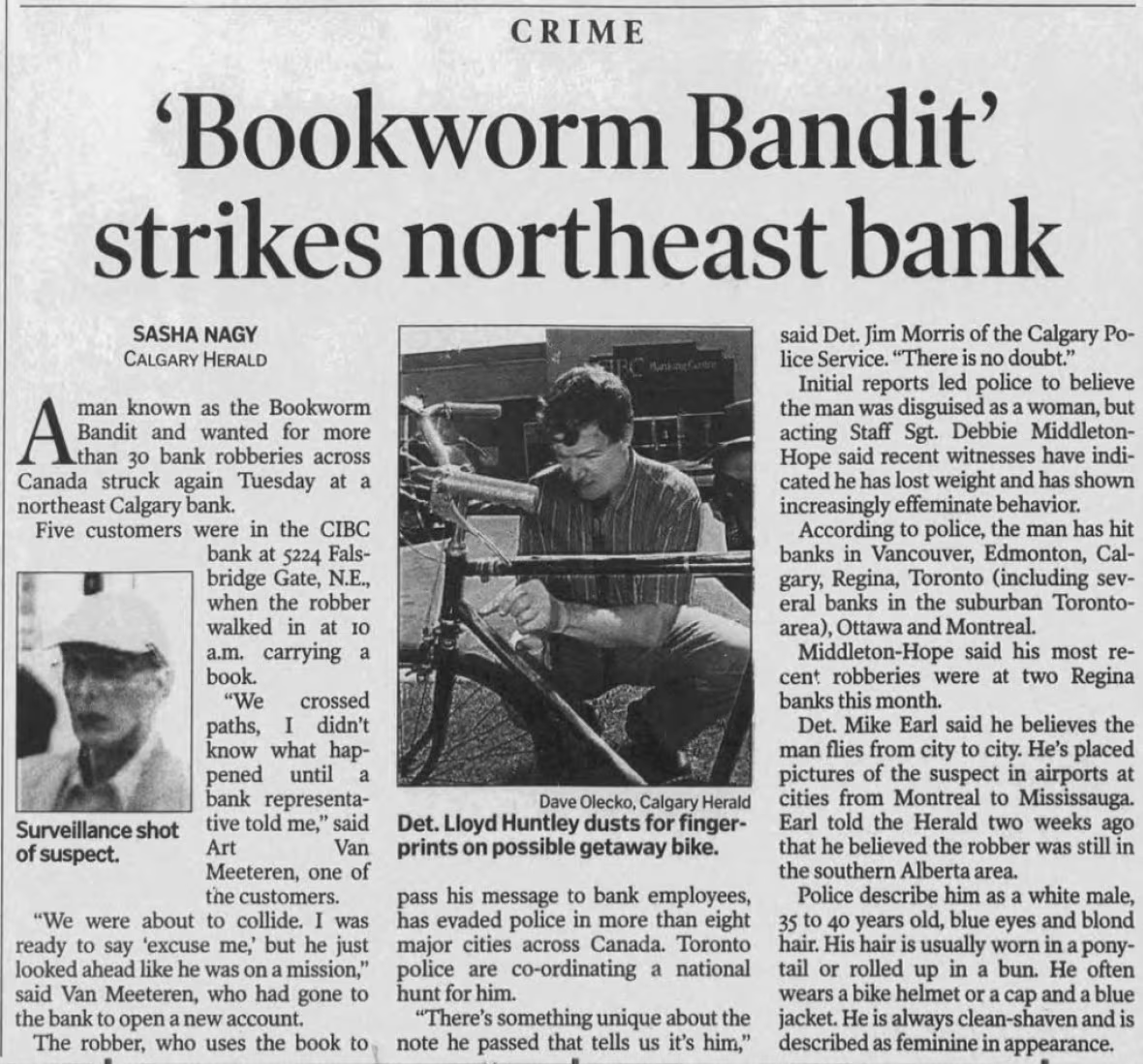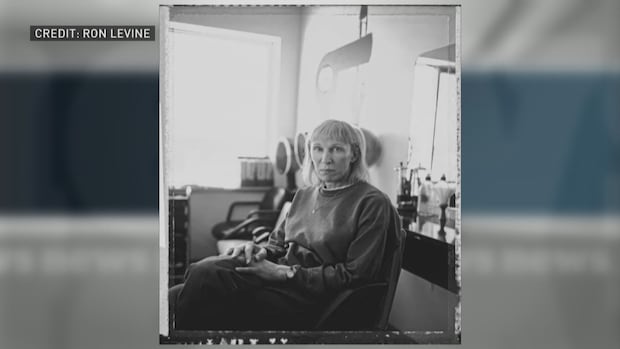Queer history project digs into the struggles of Edmonton's bank-robbing Bookworm Bandit
Trans woman Christine White turned to crime in desperate move to survive

After she transitioned in the 1990s, an Edmonton woman faced severe difficulties socially and also struggled to make a living. This was despite having a previous distinguished 20-year career in construction that had ended in a managerial position.
In 1997, in a desperate move, Christine White decided to rob a bank.
"In her mind, she wasn't actually victimizing an individual. This was a large corporation. It was a drop in the bucket," said Morgan Evans, a research assistant with the Edmonton Queer History Project.
White's story is one of many the history project has uncovered. Researchers, in collaboration with MacEwan University, are digging into archives to learn more about the life and times of Edmonton's 2SLGBTQ+ community over the past 50 years.
Evans stumbled on White's story while going through newspaper articles on ProQuest, an online database that includes academic journals, newspapers and other scholarly resources.
The discovery led Evans through newspaper and legal archives across Canada, revealing the life of an Edmontonian who, denied acceptance, had turned to crime.

Kept applying for jobs during crime spree
White was meticulous. Disguised as a man, she visited banks with a receipt book that contained her demands. This led to newspapers giving her nickname Bookworm Bandit.
She used a getaway bike that led her to a getaway car. She would hide in a suburb before leaving the city on the same day.
Over a year and a half, she stole roughly $75,000 in currency from 31 banks stretching across the country from B.C. to Ontario.
WATCH | Edmonton bank was first of many robbed by Christine White:
Although she was very good at robbing banks, White still just wanted a normal job and a regular life, Evans said. She continued applying for jobs during her crime spree but never got hired.
She was able to elude authorities in part because nobody could confirm if she was a man or woman. Bank tellers confused details of her appearance. That led to a lot of derogatory comments in newspaper articles about her appearance and identity as a transgender woman, Evans said.

White was eventually caught in Belleville, Ont., in 1998. In 2002, after pleading guilty to a total of 39 charges, she was sentenced to 11 years, with three years taken off for time served, according to the Globe and Mail.
White was sent to a women's prison, but for the first year was in protective custody, which Evans said was solitary confinement for 23½ hours a day in a room the size of an average bathroom.
"By psychological standards, that's torturous," Evans said.
Her first request parole was denied. "There is a lot of mention of her being angry about the discrimination she faced and what they viewed as the consequences of her transition," Evans said. "And that was a part of why she was denied parole."
White eventually got parole in 2007 and Evans said that's where the researchers lost the thread of her story. "We don't know what's happened since," she said.
Kristopher Wells, Canada Research Chair for the Public Understanding of Sexual and Gender Minority Youth at MacEwan University, said the importance of stories like White's in understanding the struggles faced by members of the 2SLGBTQ+ community to gain the rights they have today.
"While we enter into Pride [Month] as a time of celebration, it's really important that we remember our history as well," Wells said.
Evans said they had to be mindful of balancing audience perspectives when telling White's story.
Where some would see her as an underdog, others still view her as a criminal. But it's important to emphasize the necessity of survival, she said.
LISTEN | Edmonton Queer History Project discovers the Bookworm Bandit:

With files from Ishita Verma


